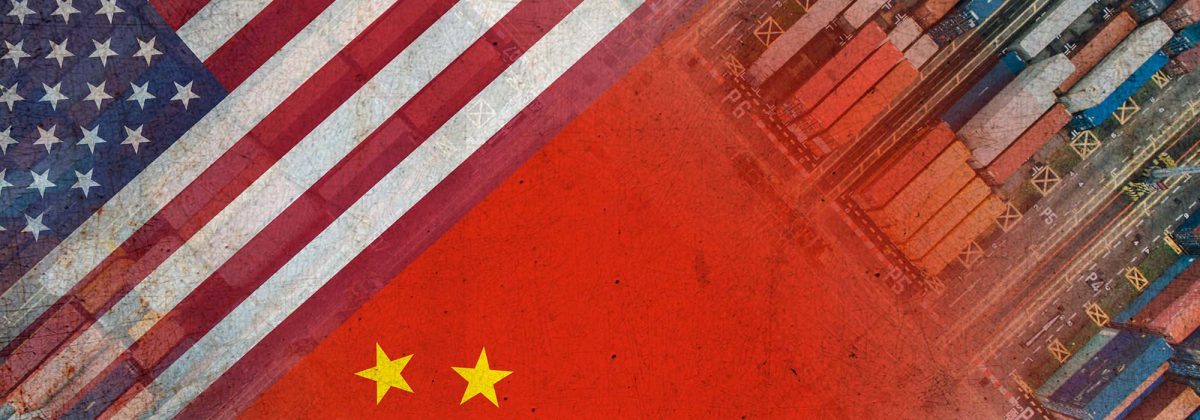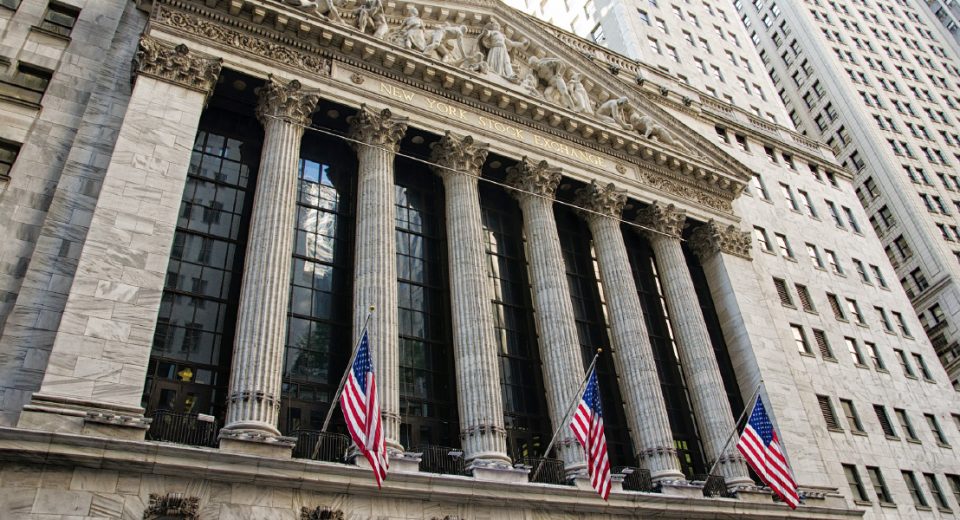Trump Considers De-Listing Chinese Companies

On September 27, 2019, the markets fell in response to the latest developments in the negotiations between the US and China. The S&P 500 declined 0.5%, while the NASDAQ Composite Index plunged 1.1%. Washington and Beijing had somehow managed to bring in new forms of economic disruption in the ongoing discussions to de-escalate the trade war, which is already causing havoc on the global economy.
In a new round of developments, President Trump and his officials have been discussing ways to limit US capital flows into the Chinese markets. Among the options being considered to achieve this are de-listing Chinese companies from US stock exchanges and limiting US investors’ exposure to the Chinese market through government pension funds. Although the exact details regarding how these measures will be implemented remain vague, it is certain that the global financial markets are likely to bear the repercussions, if these plans see the light of day.
Why This Drastic Decision?
People familiar with the internal deliberations maintain that these plans are in the early stages and any changes would first need to be approved by the US President. At the same time, analysts say that the strategy has long been in the pipeline for the Trump administration, which believes that the plan will close longstanding loopholes in the current system that allowed Chinese companies to take advantage of America’s business-friendly laws and solicit funds from US investors without proper disclosure.
Some companies listed in the US pension funds have been said to pose national security risks by administration officials.
Experts are concerned that the move could prove extremely disruptive for the US markets and the global economy. US-based pension funds could become another casualty of the trade war.
The Impact on the US Financial Markets
According to reports by the US-China Economic and Security Review Commission, the NASDAQ, New York Stock Exchange (NYSE) and NYSE American, together list around 156 Chinese companies. of which 11 are state-owned. Together, they make up roughly $1.2 trillion in market cap, as of February 2019. Some of the biggest names are included in this list, such as Alibaba Group Holding Ltd (NYSE: BABA), Baidu Inc (NASDAQ: BIDU) and JD.com Inc (NASDAQ: JD), which together account for over $500 billion in market capitalisation.
The news regarding the de-listing move led to the shares of these companies plunging. On September 27, 2019, Alibaba’s shares declined 5%, while Baidu’s stock fell 3.6% and JD.com saw a 6% decline, following the release of news reports. Even the Chinese currency, Yuan, fell to trade at 7.15 against the US Dollar.
If the de-listings come to pass, the results could be disastrous for the US capital markets, beyond the rising market volatility. Even non-Chinese firms could lose their willingness to get listed on US stock exchanges, making the country lose its appeal for foreign investors. They could instead move to other exchanges, such as that in Hong Kong or London, or even China’s newly launched STAR marketplace for start-ups.
The economic sanctions on Chinese companies could lead to the closing down of the American Depository Receipt (ADR) market. This is where instruments representing shares in foreign companies are traded. Its market capitalisation stands at more than US$ 860 billion, 90% of which is accounted for by Chinese companies.
Chinese companies already listed on US exchanges might have to look for ways to buy out shareholders. They would need to also search for secondary listings in other markets, providing investors with new shares in exchange for US stock. Analysts warn that this might pose a number of risks for investors and companies, together with challenges pertaining to data management laws.
China, by far the largest owner of US treasury bonds, could start dumping US bonds in retaliation. Fund repatriation from China to the US could be put under control, which would be grave for the US economy. For instance, Tesla is building its Giga factory in China to produce the Model 3 cars, in an attempt to avoid tariffs and reduce costs. In this scenario of increased capital controls, the company might not only find it difficult to bring back its profits to the US, but also face competitive disadvantages on Chinese shores, where local tech companies could well be given preferential treatment.
Bad News for US Investors Too
A large number of Chinese companies have gradually found their way into US indices in recent years. Global stock index provider MSCI has also started adding some top Chinese stocks to its key emerging markets index since 2017. Both Bloomberg Barclays Global Aggregate Index and JP Morgan have recently announced their intentions to include Chinese bonds on their indices in early 2019.
This means that many American investors, who have indirectly invested in the Chinese capital markets, in the form of mutual funds and other alternative investment products, will lose money. If these companies get banned from trading on US shores, US investors lose opportunities to diversify their portfolios and gain exposure to long-term growth prospects.
Moreover, China is now increasingly opening up its markets to foreign investment, particularly asking key players in the financial services industry to set up base on its shores. If the fight between the US and China continues for the long term, major US banks and mutual fund companies will lose out on their competitiveness from a global perspective.
The retirement assets of over 75 million US workers and millions of retirees are also at risk due to these escalating tensions. Their pension fund portfolios are at risk of significant disadvantage in the global financial markets. Even the threat of de-listing might cause pension fund owners and millions of investors to re-think their allocations in Chinese ADRs, hurting their asset performance outlook.
For the time being, many IPOs of Chinese companies in the US markets are on hold, possibly until the 2020 US elections. Even advisors and investors do not appear to have much clarity on what could happen next. Both the NYSE and NASDAQ are independent entities, which means that the US government cannot meddle in their listings. Experts say that even if the US Congress went ahead with the de-listing of Chinese ADRs, the matter can be taken up in court.
However, all this will only add to the turmoil that already exists in the global financial markets, which is reeling under increased financial and political risks. It will harm the US economy more than that of any other country, since other markets will be swift to pick up the pieces.







